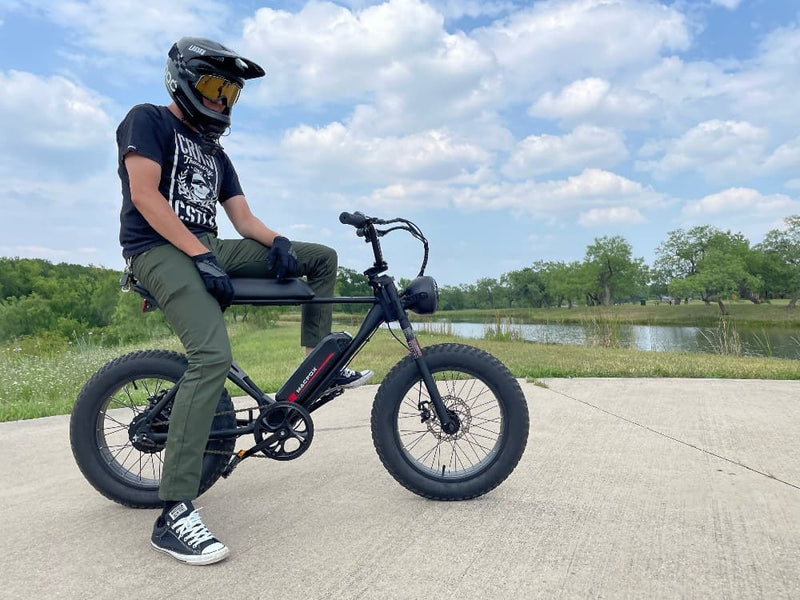The realm of transportation continually evolves, mirroring society's need for faster, more efficient, and eco-friendly modes of travel. In this ever-changing landscape, electric bicycles, commonly known as e-bikes, have emerged as the next big thing. These unique vehicles blend the time-honored tradition of manual pedaling with the futuristic advantage of electric propulsion. However, with innovation comes the need for regulation. And the question on many lips is, "How does Louisiana perceive and govern these e-bikes?" In this comprehensive guide, we'll elucidate the intricate web of Louisiana's electric bicycle laws, offering clarity to both e-bike aficionados and potential future riders.
A Comprehensive Look at E-Bikes
To genuinely appreciate the essence of the laws surrounding them, it's crucial first to understand what electric bicycles entail. At their core, e-bikes are an elegant fusion of the familiar and the novel. These are bicycles, reminiscent of the ones we've known for decades, but they're supercharged with an electric motor. This motor can function as a mere assistant to the rider, providing that extra push when needed, or it can take over entirely, turning the bicycle into an almost completely motor-driven vehicle.

E-Bike Classifications in Louisiana
Louisiana, like many states, classifies electric bicycles into distinct categories to ensure regulations are clear and applicable. These classifications provide a framework, ensuring safety without stifling the enjoyment of ebike riding:
- Class 1: These are e-bikes where the motor's assistance is contingent upon the rider pedaling. However, the assistance automatically ceases once the bicycle hits a speed of 20 mph.
- Class 2: Here, the bicycle can be powered solely by its motor, without any need for pedaling. Yet, akin to Class 1, the motor's assistance stops when the bicycle reaches 20 mph.
- Class 3: The motor in these bicycles assists only when the rider pedals and discontinues its support upon hitting 28 mph.
Regulations and E-Bikes in Louisiana
With the growth of e-bike popularity, Louisiana has implemented regulations to maintain safety and order:
-
Helmet Protocols: Louisiana places paramount importance on safety. Consequently, it mandates that riders below the age of 12 must don a helmet when atop an e-bike. For others, though not legally binding, wearing a helmet is an act of prudence.
-
Riding Terrains: E-bikes are welcome on bike and multi-use paths. But, there's a caveat: unless explicitly prohibited by signage. Class 3 e-bikes, given their elevated speed, face certain restrictions and might not be permissible on exclusive bicycle paths. Instead, they are relegated to roads or lanes adjacent to these roads.
-
Age Restrictions: While Louisiana does not explicitly dictate a minimum age for e-bike operations, the implicit understanding is that the rider should possess the maturity to handle the potential speeds and intricacies of e-bikes.
Related Reading: 5 Common Misunderstandings of Ebikes
Documentation and E-Bikes
Shifting our focus to the administrative aspect, there's good news for e-bike owners in Louisiana. The state does not mandate a specific license or registration for electric bicycles. This policy mirrors the traditional bicycle protocols, ensuring that riders aren't burdened with additional paperwork. However, the exemption from licensing does not grant riders immunity from abiding by the standard traffic rules.
Maintenance and The Role of Regular Checks
Although Louisiana law doesn't explicitly state it, there's an unwritten rule among e-bike enthusiasts - prioritize the health of your bike. Given the dual nature of these bikes, regular maintenance of your ebike is not only about ensuring longevity, it's also about safety. Regular inspections, especially by professionals, can prevent potential hazards and enhance the enjoyment and safety of riding an e-bike.
Safety First
Navigating the roads of Louisiana on an e-bike necessitates more than just adherence to laws; it requires a commitment to safety. Keeping this in mind, here are some cardinal rules:
-
Illuminate Your Way: Lamps are not only functional but also practical. They are lifesavers. Make sure your Macfox ebike has an operable front and tail light, especially if you're riding under dim skies.
-
Clear Intentions: A turn or a stop can be dangerous if unexpected. Always signal your intentions to fellow road users, ensuring smooth traffic flow.
-
Stay Updated: With the rapid growth in e-bike usage, laws and regulations are bound to evolve. It's the rider's responsibility to be updated on any new legal stipulations or changes.

Concluding Thoughts
In Louisiana, electric bicycles represent more than just a mode of transportation; they symbolize the blend of tradition and modernity. The state's laws reflect a balance between fostering innovation and ensuring safety. So, whether you're an existing e-bike rider or considering joining the fold, understanding these regulations is not just about compliance; it's about making the most of the e-bike experience.
FAQs
Q1: How does Louisiana categorize e-bikes based on their features?
- Class 1 e-bikes assist while you pedal, up to 20 mph.
- Class 2 e-bikes can be powered solely by the motor up to 20 mph.
- Class 3 e-bikes assist while pedaling, ceasing assistance at 28 mph.
Q2: Is there a licensing requirement for e-bikes in Louisiana?
No, e-bikes in Louisiana are exempt from specific licensing or registration.
Q3: Do all e-bike riders in Louisiana need to wear helmets?
Helmets are compulsory for riders below 12 years. For everyone else, while not mandatory, it's a strongly recommended safety measure.
We recommend for you:
- How to Keep Your Electric Bike Tires in Top Condition
- The Benefits of Fat Tire Electric Bikes For Commuting and Travel
- How to Prevent Injury When Riding a Fat Tire Electric Bike
- Electric Mountain Bikes Make Eco-Friendly Commutes Easy
- Electric Bike Maintenance: How to Keep Your Off-Road Electric Bike Looking like New

















